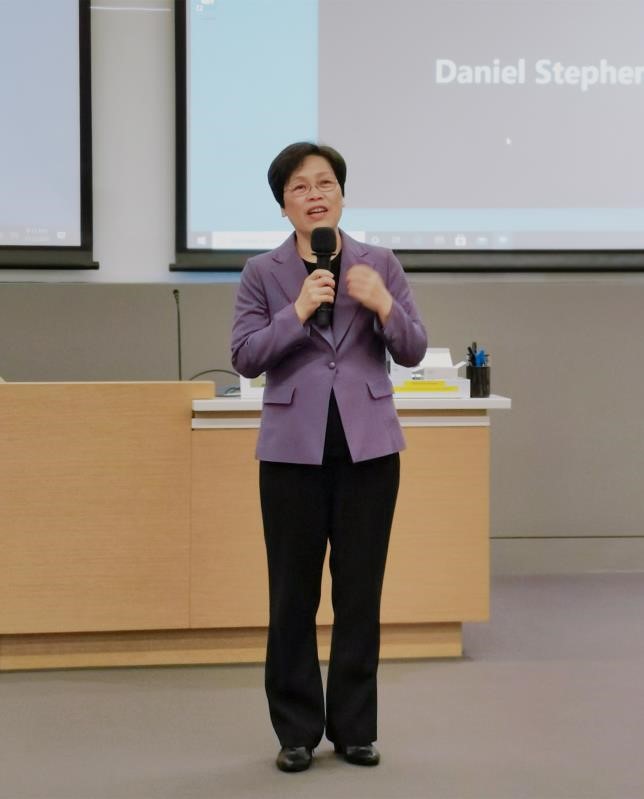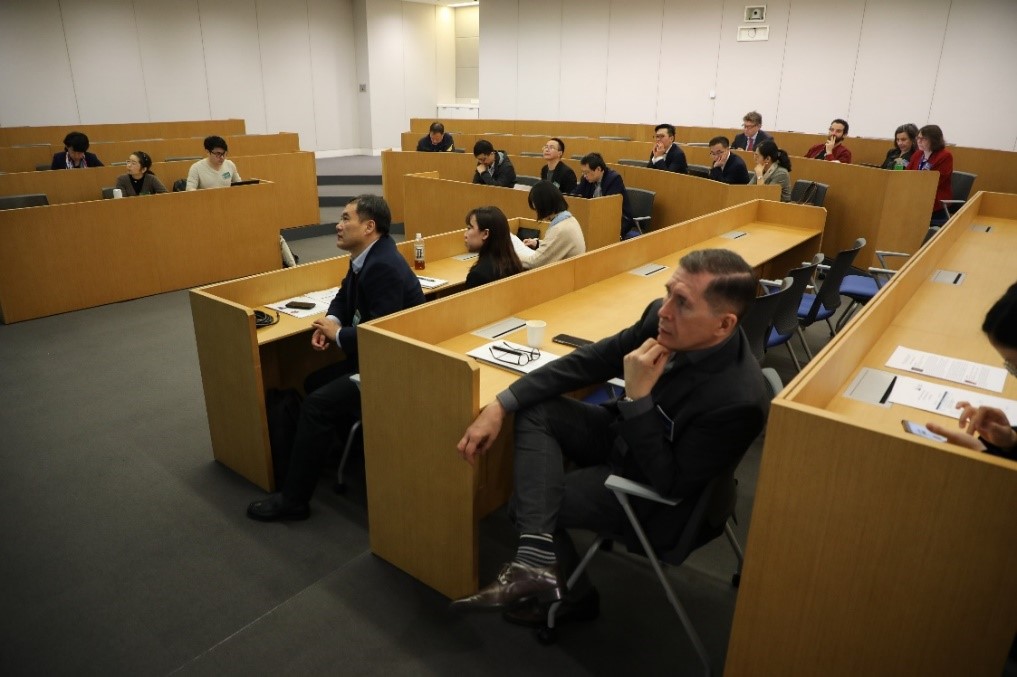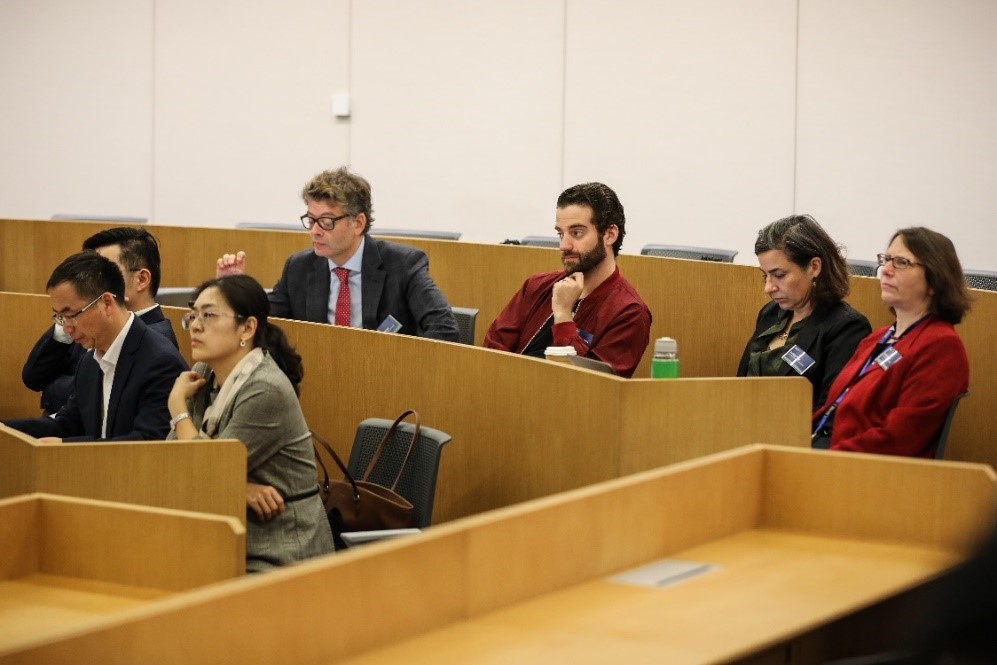Delegates from Wuhan University travelled to Jiangsu province this week to attend a workshop at Duke Kunshan University.
By Liao Cancan
7 Nov 2020
Monday November 2, the director for Institute for Advanced Study of Dialogue of Civilizations (IASDC), professor Wu Genyou, led an interdisciplinary team of seven scholars to Duke Kunshan university for an academic workshop.
The academics were also accompanied by some of Wuhan University’s senior administrative staff, including; the vice-dean of Wuhan University, Li Feifu; the vice dean of the Social Sciences Department Li Xiaokun, as well as the dean and vice dean of the International Exchange Department Li Xiaoshu and Liu Xiaoqing.
Feng Youmei, dean of Duke Kunshan university, opened the floor with some introductory remarks, stating that the workshop signalled the start of a promising relationship between Chinese universities and their international partners.

With the felicitations finished, professor Yu Xiyun, vice-dean of the Wuhan University School of History got the morning session going with a lecture on the development of Xi Yin culture. Yu was followed by professor MacEachern, who explained how gene testing technology in Africa was being used to reveal new archaeological findings. The importance of technology to archaeology was further discussed during the presentation given by Wuhan University professor Li Yinghua.
As the microphone passed to assistant professor Daniel Weissglass, the morning session took a decidedly philosophical turn. Weissglass began by exploring the notion of “value”, as well as its conditions, functions and standards in society. Professor Li Yong, vice-dean of the Wuhan University School of Philosophy, followed up with comparative spin on philosophical problem of “family”. Li’s talk was complemented by assistant professor Daniel Stephens’s interesting analysis on the Confucian concept of rites.
The morning’s discussions came to a close with two talks on Buddhism. The first was delivered by professor Ting Shen of the Wuhan University Classics department. In his talk, he explored the influence of key figures from the Chinese Inner Studies Institute on the development of the modern Buddhist belief system. Whilst assistant professor Ben Van Overmeire offered up a novel perspective in his comparative analysis of detective novels and zen koans.
The afternoon session began with a brief introduction to the IASDC by professor Wu Geyou. This was followed by assistant professor Robin Rodd’s discussion of human-computer interfacing and the corresponding power shifts that it may incur. Staying with the theme of technology, Wuhan University professor Wu Guangzheng showed how to bring the past into the future, as demonstrated through the digitisation of Yuan Dynasty art and literature.
With one eye on the past, and one eye on the future, professor James Miller considered how ancient Daoist wisdom may be an important intellectual weapon in our fight against climate change, as well as the environmental problems of the future. In a similar spirit, assistant professor at the Wuhan University School of Philosophy, Liao Cancan, made a case for a closer examination of the Ming and Qing period as a time containing historic precedent for both cultural clash, as well as cultural integration.

Assistant professor Lincoln Rathnam’s followed with a comparison of Zhuangzi and Montaigne, offering an insightful interpretation of the Daoist philosopher’s ideas. Then, in Hebdige-like fashion, Ou Yangxiao, an associate research fellow at Wuhan University, gave an in-depth of account of the “meaning of style” in Western aesthetics. The afternoon talks came to a close with assistant professor Jung Choi’s presentation on visual chaos in digital media and art, as well as a viewing of some of her works.
Lively discussion ensued, much of it revolving around questions of cultural and civilizational difference. Academics on both sides expressed the belief that workshop was not only helpful for enhancing the academic exchanges between the two universities, but also conducive to inter-civilizational dialogue. As a result, both parties have committed to hosting similar academic exchanges in the future.

Established in 2019, Wuhan University’s Institute for Advanced Study in Dialogue of Civilizations is China’s first comprehensive academic research institution solely dedicated to understanding and facilitating inter-civilizational dialogue. The IASD strives to provide an informed and ideological basis for resolving the potential conflicts between multiple civilizations. As an interdisciplinary hub, the IASD is home to WHU’s most active scholars in the humanities and social sciences. The institute also hosts regular domestic and international lectures as part of its mission to promote dialogue across the world. It is this interdisciplinary and international ethos which allows the IASD to leverage new technologies and novel perspectives from a variety of fields in its attempt to solve some of humanity’s oldest problems.
Duke University in Kunshan is a college jointly run by Wuhan University and Duke University in the United States.
Pictured by Duke Kunshan University



